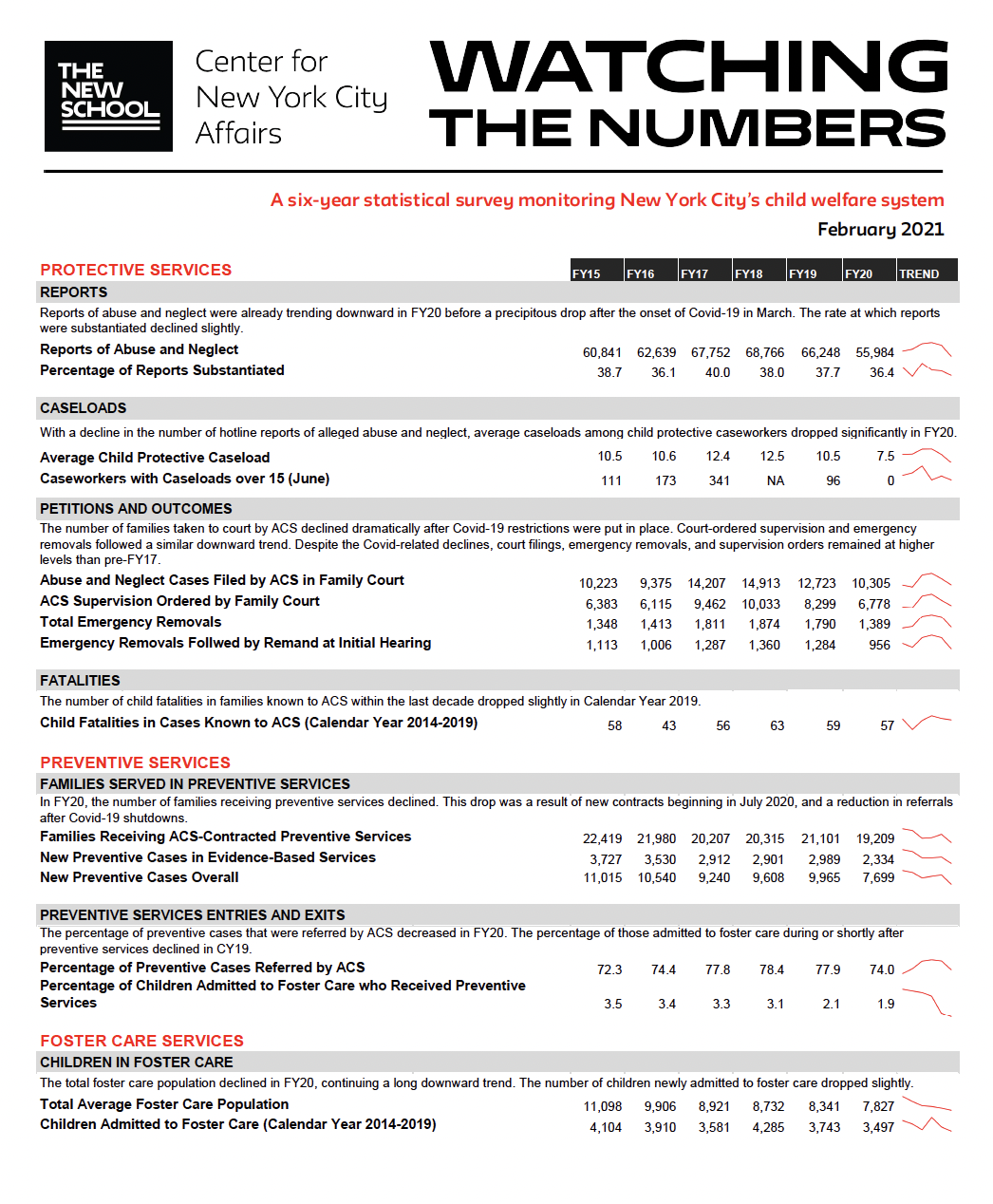Watching the Numbers 2020: Covid-19's Effects on Child Welfare System
In March 2020, the child welfare system, like much of New York City, was upended because of Covid-19. With school and social service agency closures, the number of abuse and neglect reports dropped significantly, resulting in a decline in caseloads for child protective workers and court filings by the Administration for Children’s Services (ACS). Covid-19 has impacted other key indicators across the child welfare system, leading to reductions in new preventive cases, supervision orders, and foster care admissions.
Our FY20 “Watching the Numbers” presents key indicators of New York City’s child welfare system across a six-year period. This year, “Watching the Numbers” also includes a breakout of monthly data to explore trends specific to the impacts of Covid-19.
In the first months of the pandemic, the system saw downward trends across nearly all metrics. Early City FY21 (beginning July 1st) data, however, show that some figures which dropped due to Covid-19 are trending back toward pre-pandemic levels. Indicators such as abuse and neglect court filings, court-ordered supervision cases, and emergency removals remain at higher levels than seen before FY2017 and FY2018, despite the reductions caused by the pandemic. These findings suggest the dramatic increases in these metrics beginning in FY2017 represent a durable new “normal.”
Some key trends in the FY20 data:
Continuing a long-term trend, children entering foster care and the total foster care population declined. However, fewer children were discharged from foster care, with 3,102 children discharged in FY20 compared to 4,100 in FY19.
Average caseloads for child protective workers dropped to 7.5 in FY20 and workers with caseloads over fifteen dropped to 0.
The number of new preventive cases in FY20 dropped by over 22%.
The percentage of children who returned to foster care within two years increased in calendar year 2019 to the highest level across the six-year trend.
The racial disparities among children in foster care remained high in calendar year 2019, with Black and Latinx children representing 86% of children in care.
Some key trends in the Covid-19 monthly data:
Activity across the child welfare system dropped significantly in the spring and summer and began to pick up in the fall but remained lower than recent historical trends.
Consolidated abuse and neglect investigations declined significantly between March and November 2020, compared to the same period in 2019. In April, investigations were down by 55%, and remained down by 21% in November 2020.
Abuse and neglect court filings also declined significantly between March and November 2020, relative to 2019 data. In April, case filings were down 67%. In November, filings were down by 41%, as compared to the previous year.
The number of children admitted to foster care declined by 53% in April 2020, compared to the previous year. By September, foster care admissions were down by 24%.
The number of children discharged from foster care was down by 67% in April, and down by 19% in September, relative to 2019.
This report is made possible thanks to the generous support of the Child Welfare Fund and the Ira W. DeCamp Foundation.


